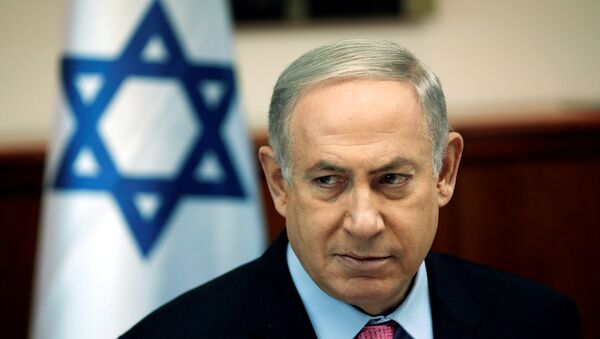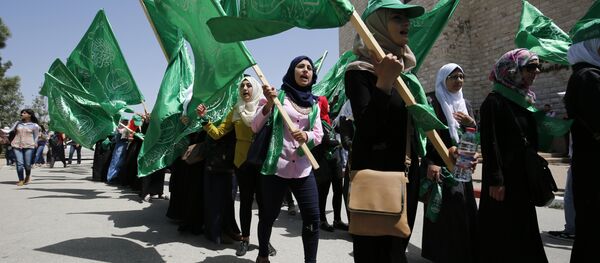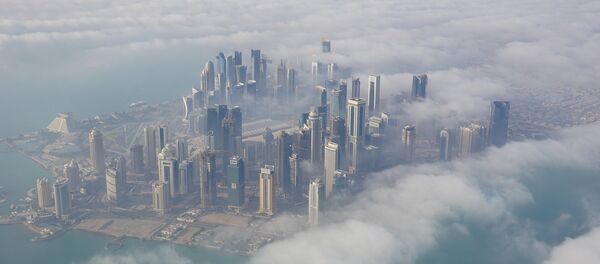Oil-rich Qatar has funded Hamas to the tune of billions of dollars over the course of the group's existence, offered it diplomatic support, and provided asylum to its various exiled leaders and members. Such is the close connection between the two, Hamas opted to launch its revised charter in Doha in May.
Such backing has greatly angered Israel — so it is bewildering the country's leaders have barely reacted to the concerted campaign of isolation and sanctions against Qatar launched June 4. Defense Minister Avigdor Lieberman welcomed the development, saying it demonstrated Arab states understood terrorism, not Zionism, was the real threat to the region, and opened "many possibilities for collaboration" in the fight against terror — although as of June 16, he is the sole government official to say anything publicly on the matter.
Other sources are less reserved. A report issued by the Israeli Institute for Security Research at Tel Aviv University cautions the crisis is the "most serious" since the 1981 establishment of the Gulf Cooperation Council, and note that while Qatar's support for Hamas breeds resentment among authorities, Israel attributes "great importance" to Qatari support elsewhere.
In essence, while Israeli authorities are infuriated by Qatar's support for Hamas, they are intensely relaxed about Qatari money that has surged into Gaza more generally. After the 2014 conflict between Gazans and the Israeli Defense Force, Doha committed US$1 billion to reconstruction, humanitarian projects, electricity costs and state salaries in the besieged region.
#Qatar to donate $1,000 to every family that their home were destroyed by operation Protective Edge
— Mark Kennedy (@marksmile100) August 17, 2014
"The emirate invests in Judea and Samaria (for example, in the new Palestinian town of Rawabi) and in the Israeli Arab sector. However, most of its support is now directed to the Gaza Strip. Qatar's support for Hamas is the largest from any other country, and is reflected in the strengthening of Hamas' governmental capabilities in the Gaza Strip, mainly through the payment of salaries and assistance for the regular supply of electricity from Israel, and the promotion and approval of humanitarian and infrastructure projects. There have also mediation attempts by Qatar between Israel and Hamas aimed at exchanging prisoners, promoting the construction of a seaport off the coast of the Gaza Strip and providing aid to Gaza residents," the report noted.
Most of the aid the besieged and occupied Palestinians from Gaza receive to comes from Qatar. The blockade will put so many lives at risk.
— Alberto Torres (@ruedasytablas) June 11, 2017
In the wake of the 2014 war, Gaza was reduced to a state of nigh on total aid dependency — a situation it has only barely recovered from as of 2017, and only then due to Qatari largesse. Israel is fully cognisant that a humanitarian crisis in or outright collapse of the war-ravaged area would serve as a palpable recruitment tool for extremist elements, and almost certainly trigger violence — the threat of crises in the region has helped spur several large-scale skirmishes in the past.
Adding to the pressure in the region is the reduction of Gaza's electricity supply by Palestinian Authority President President Mahmoud Abbas, a move seen as an attempt to weaken Hamas, the Authority's chief political rival. In response, Hamas issued a tweet stating the move would "hasten the deterioration and explosion of the situation in the Strip."
Moreover, it may be Israel is concerned that if the supply of Qatari money to Hamas is likewise cut, Hamas will seek backing from other sources — Iran, Israel's greatest regional adversary, being the most likely candidate. Such a development would not only rattle Israel, but also the other Gulf monarchies and the US — although Israel may be the sole state from the bunch that still recognizes there are more advantages than disadvantages in cooperation with Qatar in this respect.




